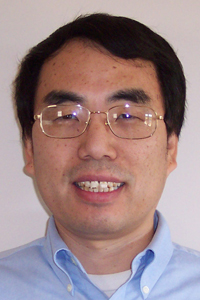
CUOS Seminar
High Energy Isolated Attosecond Pulses

Attosecond light pulses are powerful tools for studying electron-electron interaction on its natural timescale in atoms, molecules and condensed matter. Two isolated attosecond pulses with variable delay are required for time-resolving electron dynamics in pump-probe experiments, which is yet to be demonstrated due to the limited energy of the attosecond pulses at the present time. We demonstrated that the Double Optical Gating is a powerful sub-cycle optical switch for generating broadband single isolated attosecond pulses with high flux. Extreme Ultraviolet pulses as short as 67 as have been generated with this method. Double Optical Gating can be implemented with multi-cycle lasers directly from Ti:Sapphire Chirped Pulse Amplifiers. We are currently developing a carrier-envelope phase stabilized 15 fs, 200 TW driving laser to increase the attosecond pulse energy from nanojoule to microjoule level for demonstrating attosecond pump-attosecond probe and for investigating nonlinear attosecond processes.
Zenghu Chang is a Distinguished Professor of Physics and Optics at the University of Central Florida, where he directs the Institute for the Frontier of Attosecond Science and Technology (http://ifast.ucf.edu/). He is a fellow of the American Physical Society and Optical Society of America. Chang graduated from Xi'an Jiaotong University in 1982. He earned a doctorate at the Xi'an Institute of Optics and Precision Mechanics, Chinese Academy of Sciences, in 1988. From 1991 to 1993, Chang visited the Rutherford Appleton Laboratory sponsored by the Royal Society fellowship. He worked at the University of Michigan after 1996 and then joined the physics faculty at Kansas State University in 2001. Chang moved to Orlando in 2010.
 MENU
MENU 
